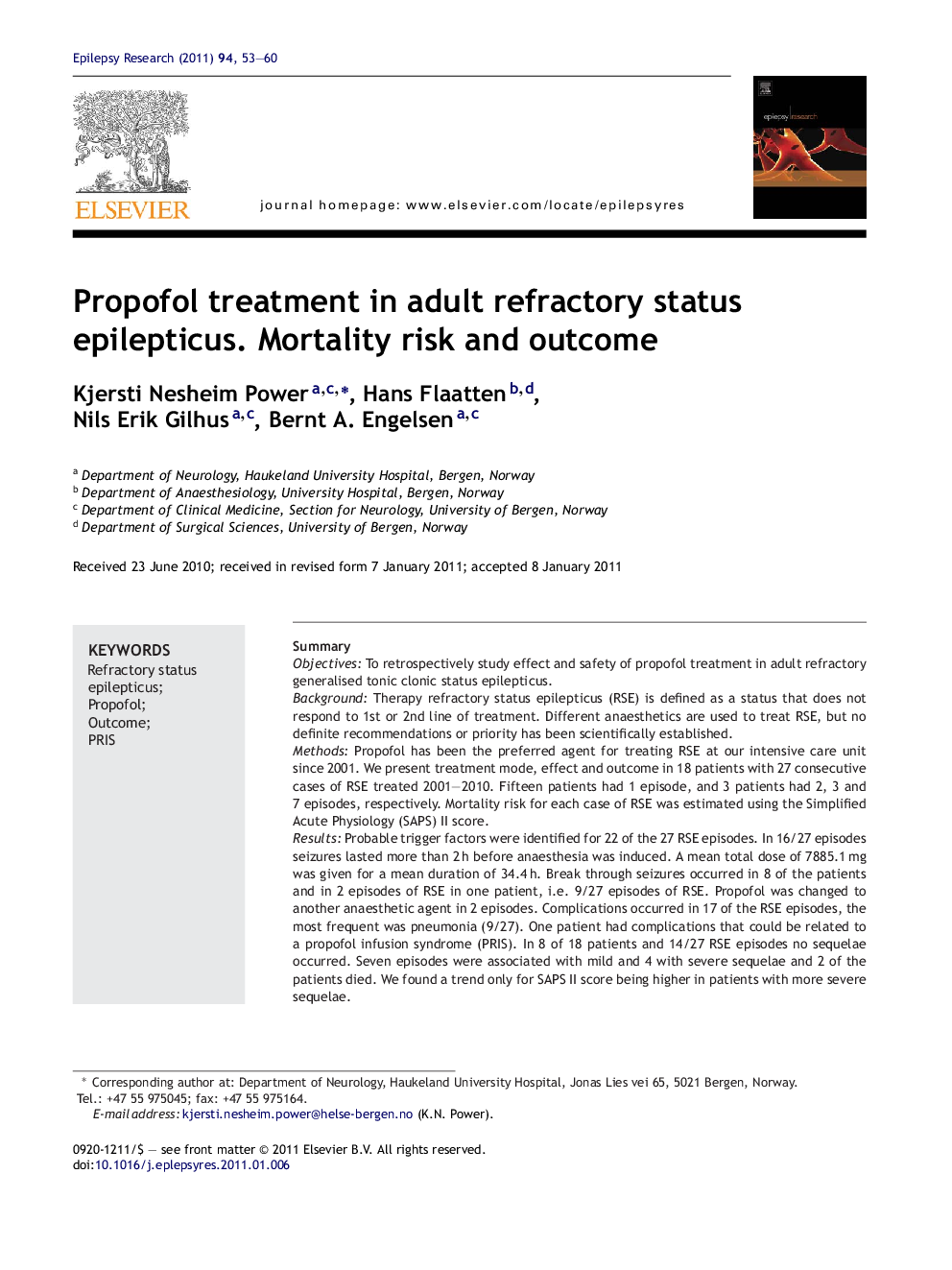| Article ID | Journal | Published Year | Pages | File Type |
|---|---|---|---|---|
| 3052416 | Epilepsy Research | 2011 | 8 Pages |
SummaryObjectivesTo retrospectively study effect and safety of propofol treatment in adult refractory generalised tonic clonic status epilepticus.BackgroundTherapy refractory status epilepticus (RSE) is defined as a status that does not respond to 1st or 2nd line of treatment. Different anaesthetics are used to treat RSE, but no definite recommendations or priority has been scientifically established.MethodsPropofol has been the preferred agent for treating RSE at our intensive care unit since 2001. We present treatment mode, effect and outcome in 18 patients with 27 consecutive cases of RSE treated 2001–2010. Fifteen patients had 1 episode, and 3 patients had 2, 3 and 7 episodes, respectively. Mortality risk for each case of RSE was estimated using the Simplified Acute Physiology (SAPS) II score.ResultsProbable trigger factors were identified for 22 of the 27 RSE episodes. In 16/27 episodes seizures lasted more than 2 h before anaesthesia was induced. A mean total dose of 7885.1 mg was given for a mean duration of 34.4 h. Break through seizures occurred in 8 of the patients and in 2 episodes of RSE in one patient, i.e. 9/27 episodes of RSE. Propofol was changed to another anaesthetic agent in 2 episodes. Complications occurred in 17 of the RSE episodes, the most frequent was pneumonia (9/27). One patient had complications that could be related to a propofol infusion syndrome (PRIS). In 8 of 18 patients and 14/27 RSE episodes no sequelae occurred. Seven episodes were associated with mild and 4 with severe sequelae and 2 of the patients died. We found a trend only for SAPS II score being higher in patients with more severe sequelae.ConclusionsOur data support propofol as an effective anaesthetic for treating RSE. Close clinical observation for possible PRIS is warranted if propofol is given for more than 48 h.
